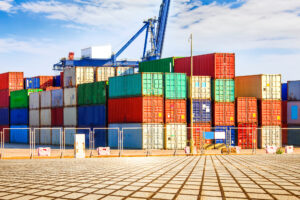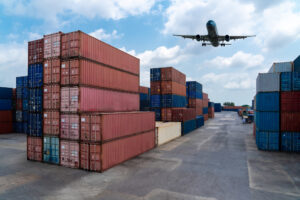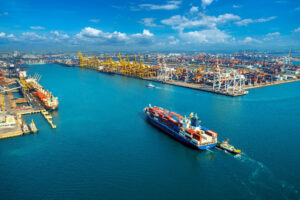Choosing the right freight forwarder can make or break your logistics operations. Whether you’re a small business importing goods into Ghana or a large enterprise coordinating complex cross-border shipments across West Africa, your freight partner plays a vital role in ensuring timely, cost-effective, and secure delivery.
With dozens of providers offering similar services, how do you decide which freight forwarder truly understands your needs?
This article will walk you through the most important factors to consider—especially within the context of Ghana, Nigeria, and the wider ECOWAS region—so you can choose a logistics partner that adds real value to your supply chain.
1. Industry Experience & Regional Expertise
Freight forwarding is about more than moving goods from Point A to B—especially in West Africa, where customs processes, road conditions, and port congestion can significantly impact timelines.
Choose a forwarder that:
- Has proven experience in your industry (e.g., mining, construction, FMCG, etc.)
- Understands local ports like Tema, Takoradi, or Apapa
- Is familiar with ECOWAS trade protocols and regional cross-border requirements
💡 Example: At Freight Consult Ghana Ltd, we’ve handled complex logistics across Ghana, Nigeria, Liberia, and Sierra Leone—with end-to-end solutions for both standard and specialized cargo.
2. Service Range: Do They Offer End-to-End Solutions?
Not all freight forwarders are created equal. Some only manage port-to-port transport, while others offer door-to-door services, warehousing, customs clearance, and inland haulage.
The right partner should provide:
- Air Freight & Ocean Freight options
- Customs brokerage services (with local representation)
- Project cargo handling for oversized or sensitive goods
- Warehousing, inventory management, and last-mile delivery
✅ Look for multi-service capability under one roof. It reduces fragmentation and improves accountability.
3. Network & Partnerships
Strong global and regional networks make a freight forwarder more reliable and flexible, especially when navigating supply chain disruptions or dealing with international suppliers.
Questions to ask:
- Are they affiliated with global freight alliances or agencies?
- Do they have partner offices or agents in your key sourcing/destination markets (e.g., China, Dubai, Europe, USA)?
- Can they help with multimodal transport (air/sea/land)?
🌍 Freight Consult is the primary Ghana agent for BDP International and a member of the Centrolene Network and New Silk Road Network, giving our clients global reach across 140+ countries.
4. Customs Clearance Knowledge
Customs is often the most complex and delay-prone stage of freight movement—especially in countries with evolving trade regulations.
A good forwarder will:
- Be fully licensed by Ghana Revenue Authority (GRA) Customs Division
- Provide assistance with documentation, HS codes, duties, and exemptions
- Understand country-specific import/export restrictions
- Help you avoid demurrage and clearance delays
⏱ Freight Consult averages 24–48 hour clearance at major Ghana entry points, thanks to deep working relationships at Kotoka International Airport, Tema Port, and other border posts.
5. Technology & Transparency
Modern logistics demands transparency. Can your freight forwarder provide real-time updates, digital tracking, and document access?
Look for:
- A cargo tracking system or portal
- E-documents (BLs, invoices, manifests, etc.)
- Visibility into clearance status and transit movement
- Automated alerts on exceptions, delays, or ETAs
🖥 Freight Consult’s proprietary FC Management System gives clients full visibility from booking to final delivery.
6. Customer Support & Communication
You don’t want a freight forwarder who goes silent once the container is booked. Great communication is non-negotiable.
Evaluate:
- How responsive is their team?
- Do they assign you a dedicated contact person?
- Can they provide status reports and proactive updates?
📞 A responsive team can prevent minor issues from becoming costly delays.
7. Pricing & Transparency
While cost is important, the cheapest quote often hides surprises like hidden fees, poor handling, or longer transit times.
What to prioritize:
- Transparent pricing with clear breakdowns (freight, duties, warehousing, etc.)
- Predictable costs for clearance, handling, and delivery
- A good balance between affordability and service quality
💬 Tip: Ask for a sample cost breakdown and compare apples to apples.
8. References & Reputation
Always check what other clients have to say.
- Do they have client testimonials or case studies?
- Are they listed on industry directories or review sites?
- Can they share references from similar industries?
🔍 If possible, ask for a reference from a business similar to yours. Real feedback beats any sales pitch.
Conclusion: Choose a Forwarder That Thinks Like a Partner
A great freight forwarder isn’t just a service provider—they’re a supply chain partner who protects your interests, enhances your efficiency, and helps you scale.
At Freight Consult, we’re more than just movers of goods. We’re enablers of trade, growth, and trust. With offices in Accra, Tema, and Takoradi—and a powerful global network—we help Ghanaian and West African businesses deliver with confidence.



